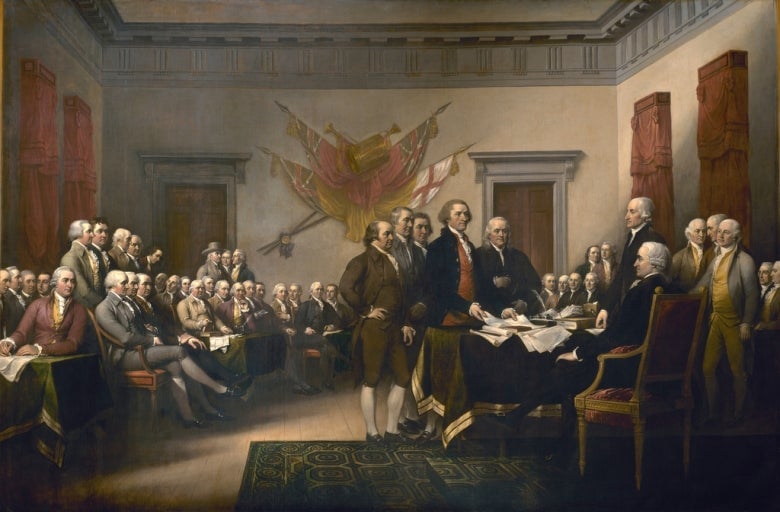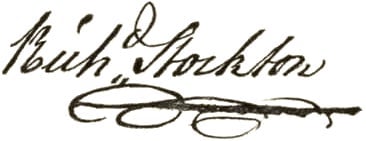There is one suspect signature on the US Declaration of Independence
Determining the truth in news reports has rarely been easy.


Determining the truth in news reports has rarely been easy.
Consider the case of Richard Stockton, a New Jersey Continental Congressman locked up by the British in November 1776, a few months after he signed the US Declaration of Independence. He seemed devoted to the cause of the American Revolution, but rumors persist that he turned in prison, repudiated his signature, and swore allegiance to the British king.

On December 23, 1776, Congressional delegate Elbridge Gerry wrote to James Warren in Massachusetts, saying, “Judge Stockton of the Jerseys who was also a member of Congress has sued for pardon. I wish every timid Whig or pretended Whig in America would pursue the same plan.”
According to The Society for the Descendants of the Signers of the Declaration of Independence, that statement was unfounded. Doubts about Stockton’s loyalties are advanced by “revisionist writers using rumors and innuendo to spread this false claim against a founding father,” the society says. It argues that in March 1777, only two months after Stockton’s release, in a letter to the British parliament, General William Howe wrote that “at no time had a leading rebel sought pardon.”
Who’s right?
This much is known. Stockton was captured in New Jersey on November 30, 1776 by British loyalists. He was jailed and spent about six weeks in custody in possibly grim conditions.
In January of 1777, George Washington was directed by Congress to protest to Howe, and Stockton was released that same month. That’s when the rumors about his loyalty began spreading in earnest.
In December, 1777, Stockton was called before the New Jersey legislature and asked to sign an oath of allegiance to the Continental Congress. Stockton’s alma mater, Princeton University in New Jersey, provides this account:
Upon Stockton’s return to Princeton, it became known (according to a letter from President Witherspoon to his son, David) that during his imprisonment the British had persuaded him to sign General Howe’s Declaration, which required an oath of allegiance to the King—an act Stockton revoked later that year by signing oaths of adjuration and allegiance prescribed by the New Jersey legislature.
Thereafter, Stockton went about his personal business, taking up a private law practice until his death from cancer in 1781.
Rumors about his loyalty have not been put to rest. Last July, the Journal of the American Revolution asked, ”Was Richard Stockton a Hero?” It concludes with a muted “yes,” but also suggests that he should not be celebrated as “one of New Jersey’s greatest heroes,” given that he seems to have buckled under pressure while in British custody. Other detractors say that there were no accounts of Stockton’s poor treatment in jail after his release.
Still, Stockton was the only signatory to the Declaration of Independence imprisoned, and he may also have been the only one to come to regret signing it. But it seems we’ll never know what’s true and what’s—over 200 years later—fake news.